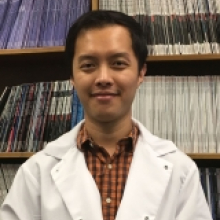Wei-Hsiang Huang, PhD
Assistant Professor

Gene Dosage Imbalance, Chromatin Biology, and Human Neurodevelopmental Disorders
We are interested in how gene dosage imbalance causes human neurodevelopmental disorders such as autism spectrum disorders (ASDs) and intellectual disability. Understanding these disorders on molecular, cellular, neural circuit, and behavioral levels will provide therapeutic avenues and ultimately improve patients’ quality of life. We model gene dosage imbalance in a pair of syndromic ASDs: Smith−Magenis Syndrome (SMS), caused by loss of a Retinoic Acid Induced 1 (RAI1), and Potocki−Lupski Syndrome (PTLS), caused by gain of RAI1.
RAI1 is a chromatin-interacting protein that regulates many genes involved in neural circuit assembly. We are also interested in its interacting partner TCF20, which is mutated in patients who suffer from intellectual disability and ASDs.
Currently, we study the following topics:
How do gain and loss of Rai1 impact neural activities and the functional development/maintenance of neural circuits?
What are the molecular functions of Rai1? How does Rai1 and its interacting proteins regulate chromatin conformation, signaling pathways, and gene expression?
Can we leverage modern molecular screening tools to identify modifiers that can be targeted by drugs to regularize Rai1 protein levels in SMS and PTLS patients?
To study these questions, we apply multidisciplinary approaches including transgenic mouse models, next generation sequencing, proteomic array and mapping technologies, whole brain clearing and volume imaging, virus-mediated neural circuit tracing, and mouse behavioral assays.